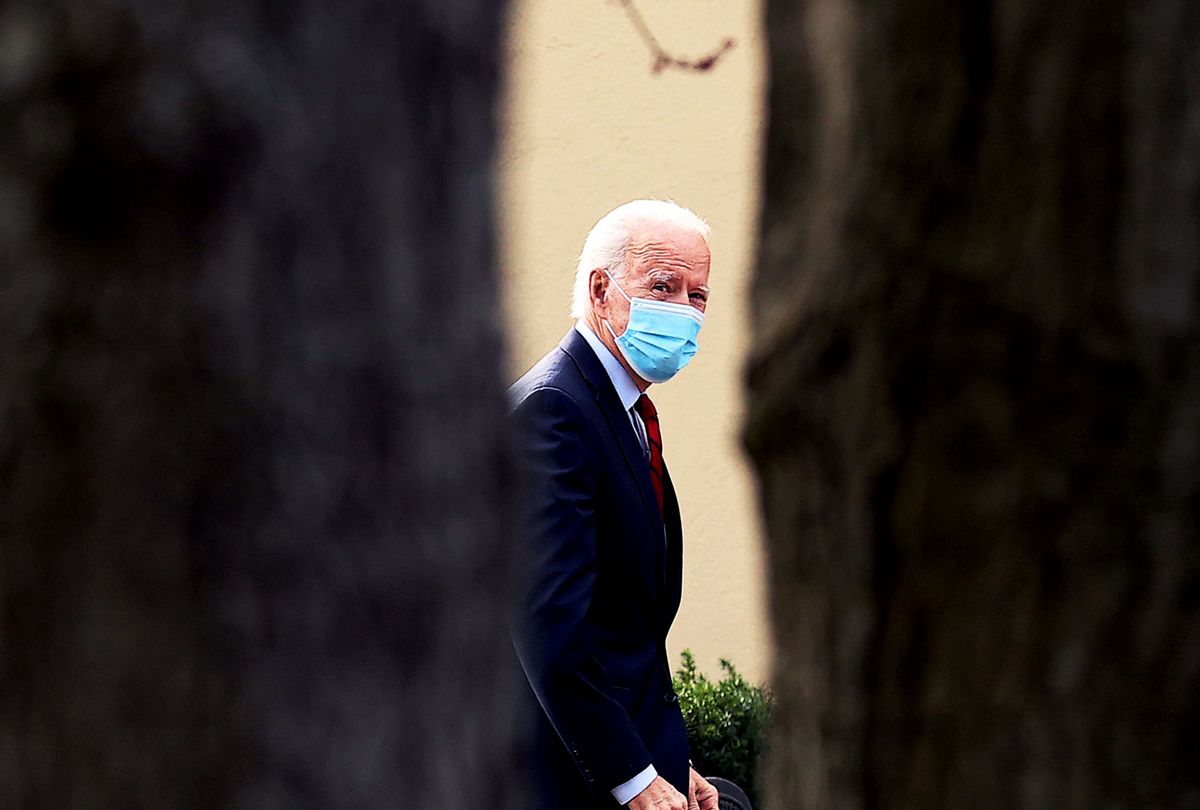Easily-bored political reporters are looking for something exciting to do now that the Trump circus is leaving town, and I have an idea: Demand transparency from the Biden administration, and don't let up.
Start by insisting that Biden hold open-ended press conferences ASAP. Then get him to publicly commit not simply to a return to Obama-level transparency, but to a new era of openness. The only way a public that has lost faith in government can learn to trust it again will be by being able to truly see how it works — and by seeing it held accountable.
Here are a few specific questions reporters should ask:
- When will you start releasing White House visitors logs again, as Obama did but Trump refused to do? Will you do it with fewer exceptions and less subterfuge?
- Will you demand that your agency heads do the same?
- Will you publicly authorize multiple top administration officials to speak to reporters on the record — with no more anonymous "background briefings"?
- Will you proactively establish entire classes of documents that will be made public by federal agencies without reporters having to ask? That would include the calendars of agency heads, agency org charts, top contracts and grants, all unclassified correspondence with Congress, and a summary of classified inspector general reports, for starters.
- Will you restore transparency of the pardon process? Will you pledge to use clemency for mercy and justice and never for personal protection or political favor?
- Will you promise to respect the oversight powers of Congress? Will you repudiate Trump's blanket refusal to comply with congressional requests and subpoenas?
- Here is a list of documents that Congress has requested from the executive branch, but that Trump has refused to turn over. Will you release them now?
- Here is a list of the most important Freedom of Information Act requests that have been ignored by the Trump administration. Will you make the information public without any further delay?
- Are you committed to appointing nonpolitical inspectors general? Do you promise to fire them only for good and specified causes?
- Please publicly acknowledge the value of dissenters and whistleblowers inside the executive branch.
- Will you pledge not to use the Espionage Act of 1917 to pursue leakers?
- Will you renounce the prosecution of journalists for doing their job?
- Do you recognize that the Obama administration was insufficiently forthright about surveillance, killer drones and cyber-warfare? Do you agree that the public deserves to know what the government's overarching approach is to these increasingly common and powerful tools, as well as what guardrails prevent their misuse?
- Will you, unlike Obama, openly discuss American policy regarding the indefinite detention of foreign prisoners and the covert targeted killings of terror suspects?
There is nothing inappropriately partisan or provocative about journalists starting to bang this drum now, and loudly. Habits are forming within the new administration, and it's essential for the public that those habits be good ones.
"Without rules in place to ensure transparency, ethics, accountability, none of the stuff that we want to get done is going to get done effectively," says Lisa Rosenberg, executive director of Open the Government, which advances the public's right to know. "Because at its core, for our democracy, for institutions to work, they need to be accountable. So if we want to address COVID, if we want to address climate change — it doesn't matter what it is — we need to start with the fundamentals. And the fundamentals are an accountable government."
I interviewed Rosenberg because she recently finished shepherding an extraordinary report titled "Accountability 2021: Recommendations for restoring accountability in the federal government." The contributors — an all-star collection of most of my favorite good-government types — put together a spectacular and exhaustive list for policymakers in the executive and judicial branch.
It's also something of a cheat sheet for reporters who want to set a positive, public-spirited agenda. Several of my suggestions above are cribbed from it.
One goal, Rosenberg said, should be for Biden to say, "I will be available to journalists. I commit to making all of these people available to journalists. And you can ask us anything."
She said that when Biden interviews job candidates, "he should ask them about their commitment to transparency."
One of the major, concrete recommendations in the report: "We want what we're calling a chief accountability officer to be in the White House," Rosenberg said. "And that person then would implement the ethics orders, the transparency orders — all of those sorts of initiatives that we hope to see issued on Day One of a Biden presidency."
Having such a position would be a big step forward, Rosenberg said. "By placing that person in the White House, presumably, they have the ear of the president. And they can say, 'You know, Mr. President, this isn't going the way it's supposed to. We're not seeing proactive disclosures,' or 'We're seeing when one agency doesn't talk to another.' "
Here's one particularly resonant passage from the report:
Agency leadership fails to reward civil servants who work to advance transparency, instead too often consistently violate legal requirements to provide comprehensive, accurate, and timely information to the public; the default to extreme, unwarranted secrecy often puts civil rights and civil liberties at risk; and antiquated technology and the lack of uniform data protocols leave us in the dark.
And one possible solution:
The president should prioritize the institutionalization and protection of dissent across government. Each agency should at minimum create a "dissent channel" —modeled after the Dissent Channel at the Department of State and the Direct Channel at the United States Agency for International Development — that allows civil servants and federal contractors to voice objections to policies, corruption, or inappropriate interference by political appointees, and clarify that any civil servant or contractor that appropriately utilizes the channel for those purposes will be protected from retaliation under applicable whistleblower protection laws.
If the political press suddenly wants to prove how tough it is, after four years of completely failing to hold Donald Trump and his inner circle accountable, it could best do so not by finding fake scandals to blow out of proportion, but by aggressively pushing Biden to meet the needs of the public — in a way no president has ever done before.




Shares